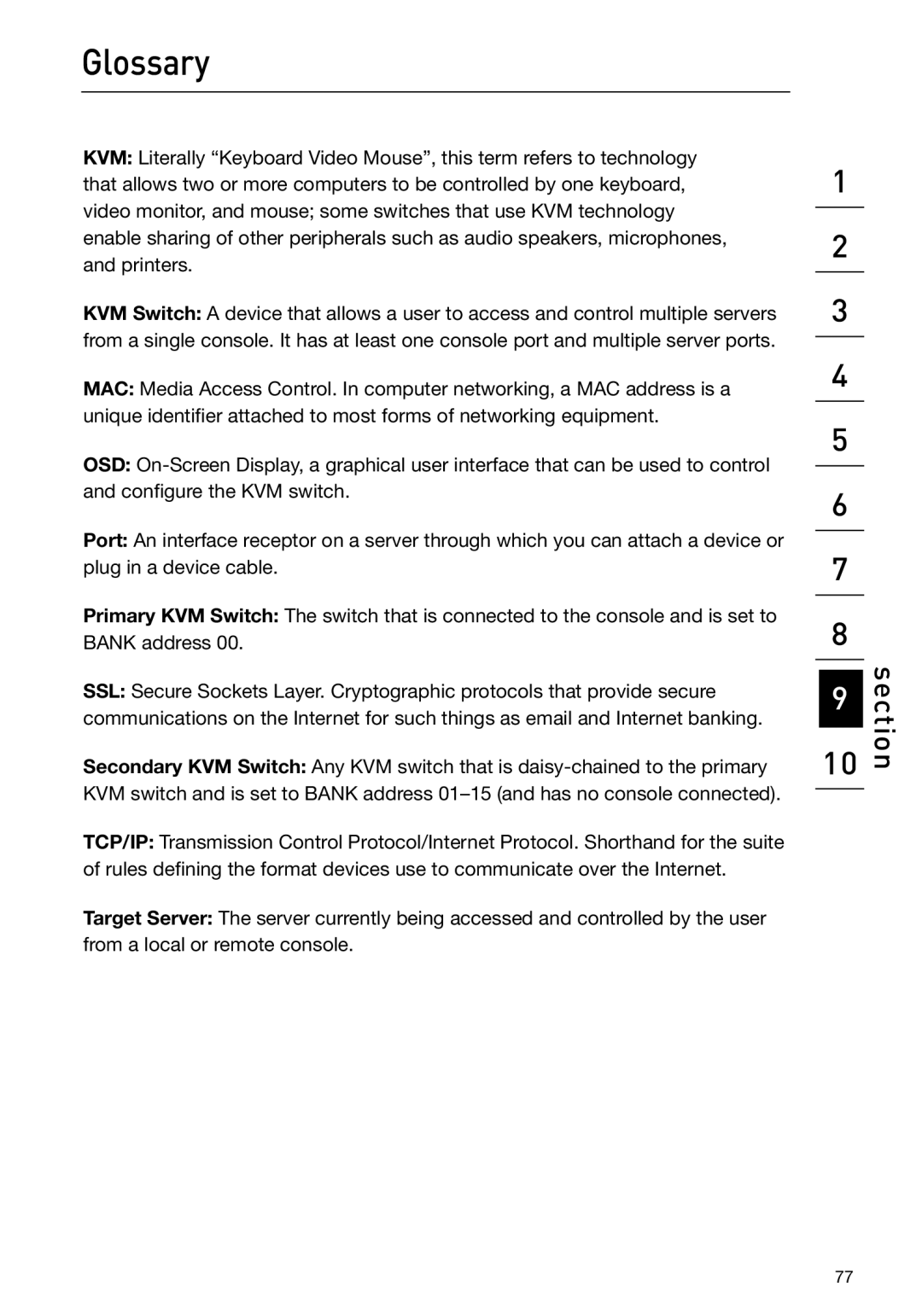
Glossary
KVM: Literally “Keyboard Video Mouse”, this term refers to technology that allows two or more computers to be controlled by one keyboard, video monitor, and mouse; some switches that use KVM technology enable sharing of other peripherals such as audio speakers, microphones, and printers.
KVM Switch: A device that allows a user to access and control multiple servers from a single console. It has at least one console port and multiple server ports.
MAC: Media Access Control. In computer networking, a MAC address is a unique identifier attached to most forms of networking equipment.
OSD:
Port: An interface receptor on a server through which you can attach a device or plug in a device cable.
Primary KVM Switch: The switch that is connected to the console and is set to BANK address 00.
SSL: Secure Sockets Layer. Cryptographic protocols that provide secure communications on the Internet for such things as email and Internet banking.
Secondary KVM Switch: Any KVM switch that is
TCP/IP: Transmission Control Protocol/Internet Protocol. Shorthand for the suite of rules defining the format devices use to communicate over the Internet.
Target Server: The server currently being accessed and controlled by the user from a local or remote console.
1
2
3
4
5
6
7
8
9
10
section
77
